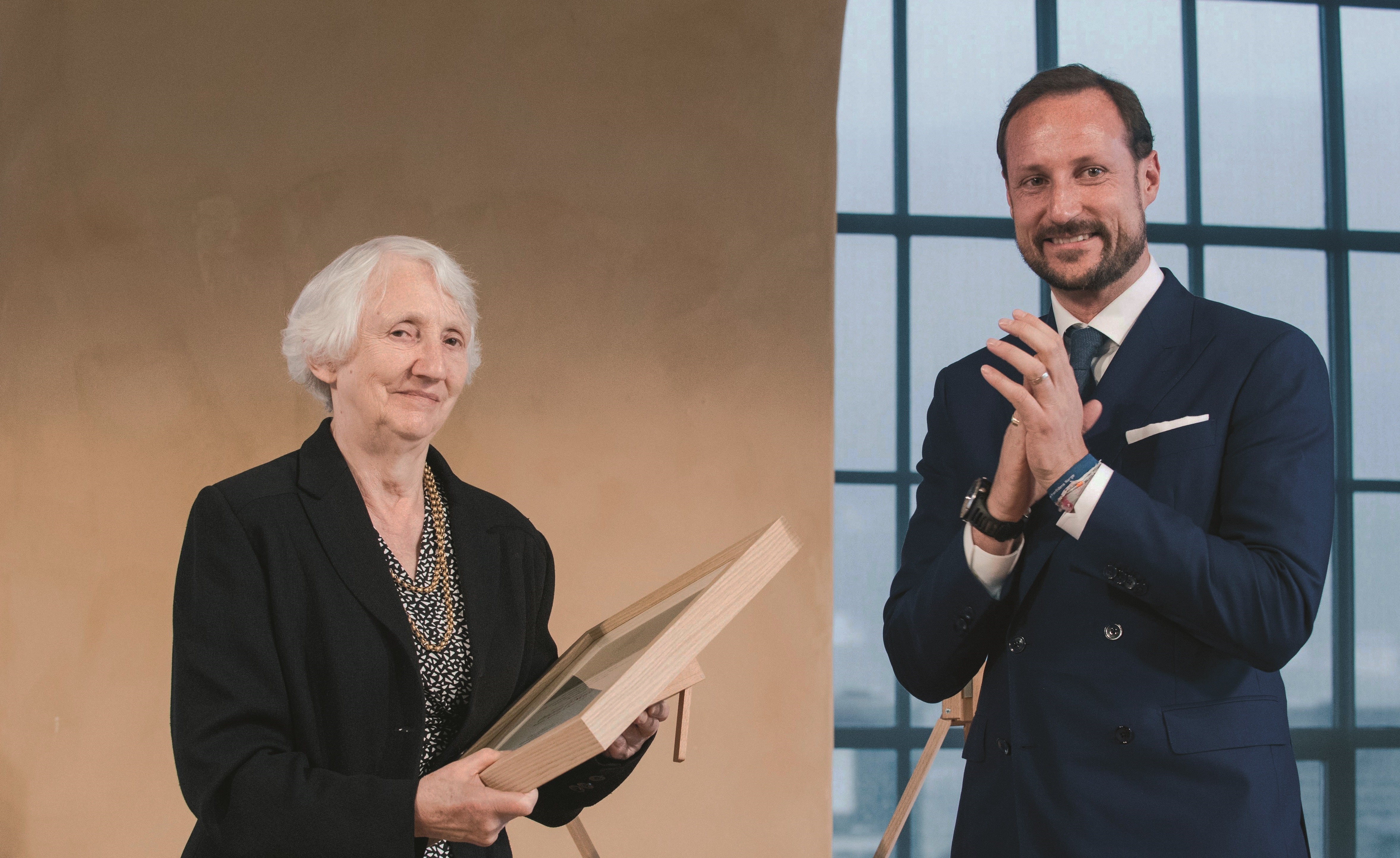The 2017 Holberg Prize and the Nils Klim Prize conferred

Today, the Holberg Prize was officially conferred upon British author, scholar and Philosophy Professor Onora O'Neill Onora O’Neill by H.R.H. Crown Prince Haakon of Norway.
At a prestigious award ceremony in the University Aula in Bergen, Baroness O’Neill of Bengarve today received the international research award from H.R.H Crown Prince Haakon. O’Neill is presently Honorary Professor of Philosophy, Emeritus, at Cambridge.
The Holberg Prize is worth NOK 4.5 million (appr. EUR 475.000 or $535.000) and is awarded annually for outstanding contributions to research in the arts and humanities, social sciences, law or theology.
“It is a very great honour to be awarded the Holberg Prize, and a very large surprise,” said the Laureate in her acceptance speech. “I thank the committee for their hard work and the Norwegian people for their great generosity and their recognition, most deeply."
Watch the ceremony here.
O’Neill’s speech at the Award Ceremony on 8 June, 2017
Kant, Public Reason and Communication
O’Neill receives the Prize for her distinguished and influential role in the field of philosophy and for shedding light on pressing intellectual and ethical questions of our time. Her contribution to our understanding of Immanuel Kant is regarded as transformative. She has also combined writing on political philosophy and ethics with a range of public activities, and her work has influenced generations of scholars, policy makers and practitioners alike.
In her acceptance speech, O’Neill described her approach to Kant and addressed the question of how reasoning can bear on action: “We can at least say this much about reasoning: if we want to give others reasons to believe something, we must offer considerations that they could follow in thought,” the Laureate said, “and if we want to give them reasons for acting we must offer them proposals that they could adopt as principles for action.”
O’Neill also addressed dilemmas relating to free expression, and she underscored how we must find ways to deal with the challenges that arise from new forms of communication: “How are personal and democratic life to be protected in our new situation from those whose weapon is simply the dissemination of content?” O’Neill asked. “It is tempting to think that because we managed the transitions to writing and to printing, there are tried and tested ways of dealing with new challenges. But do we? Here perhaps philosophers and others should fear to tread: but perhaps we must be bold.”
Lower crime rates through rehabilitation
Also today, the Nils Klim Prize was conferred upon Norwegian Professor of Economics Katrine Vellesen Løken, University of Bergen, for her research on the Nordic welfare states. Løken became Norway’s youngest female professor of economics ever at the age of 31. The Nils Klim Prize amount is NOK 300.000 (approx. EUR 33.000), and the Prize is awarded annually to a Nordic researcher under the age of 35, who has made an outstanding contribution to research in the fields covered by the Holberg Prize.
Vellesen Løken said in her acceptance speech that she was honored and humbled to receive the Prize. She also described her current research focus: The social costs of incarceration.
One key preliminary finding in this research is that the Nordic prisons and their rehabilitation programs can significantly reduce later criminality through increased participation in the labor market, the Nils Klim Laureate said. “Again, the Nordic countries serve as inspiration for other countries in how to form and direct resources to the penal system.”